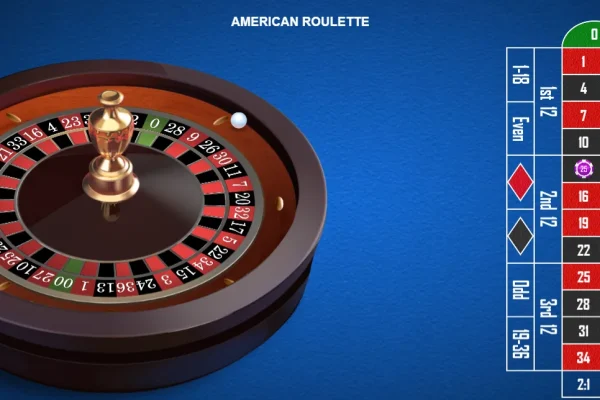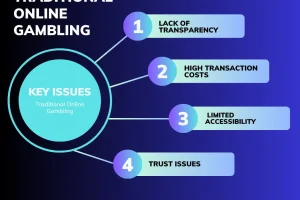Let’s be honest. Gambling is designed to be engaging. The lights, the sounds, the sheer anticipation—it all taps into something deep within our brains. Talking about “responsible gambling” can sometimes feel like a lecture, a list of “don’ts” that ignores the powerful “why” behind our actions.
But what if understanding the psychology could actually set you free? It’s less about fighting your instincts and more about managing them. Let’s dive into the mental machinery that drives both the thrill and the potential peril, and how you can build habits that keep the experience fun and under your control.
The Brain in the Casino: A Chemical Cocktail
At its core, gambling is a powerful manipulator of your brain’s reward system. It’s not just in your head; it’s in your neurochemistry.
The Dopamine Dance
Every time you place a bet, your brain releases a tiny bit of dopamine, the “feel-good” chemical associated with pleasure and reward. Here’s the catch, though: the biggest dopamine hits don’t always come from winning. They come from the near-miss.
That sensation when two sevens line up and the third is just… almost… there? Your brain interprets that near-win almost exactly like an actual win. It’s a cruel trick, one that keeps you playing, convinced that success is just one more spin away. This variable ratio reinforcement—where rewards are unpredictable—is the most powerful habit-forming schedule known to psychology. It’s the same mechanism that keeps us scrolling on social media, hoping for that next interesting post.
The Illusion of Control
We humans hate feeling like things are random. So, we create superstitions and rituals to cope. “I have to blow on the dice.” “I always play this specific slot machine.” This is the illusion of control at work.
It’s a psychological comfort blanket, making us feel like we can influence an outcome that is, by its very nature, governed by chance. Recognizing this tendency is a huge step toward responsible gambling habits. It allows you to see the game for what it is: a form of entertainment with a pre-determined house edge, not a skill-based puzzle you can necessarily solve.
Cognitive Biases: The Mental Shortcuts That Trip Us Up
Our brains are wired to take shortcuts. These cognitive biases are usually helpful, but in the context of gambling, they can seriously distort our thinking.
Let’s break down a few of the big ones:
- The Gambler’s Fallacy: This is the belief that past events can influence future outcomes in a random sequence. “The roulette wheel has landed on black five times in a row; red has to be next!” In reality, each spin is independent. The wheel has no memory.
- Confirmation Bias: We naturally remember our wins more vividly than our losses. That one big jackpot from years ago feels more real and recent than the steady stream of small losses. We seek out information that confirms we’re “lucky” or “good at this,” ignoring all the evidence to the contrary.
- Availability Heuristic: When we see news stories about massive lottery winners or a friend’s big score, it feels like winning is more common than it actually is. Those dramatic, easily recalled examples skew our perception of the very real, very long odds.
Building Your Psychological Defense System
Okay, so we’re wired for this. Now what? Well, knowledge is power. You can’t stop the dopamine or instantly erase cognitive biases, but you can build a framework of habits that account for them.
Pre-Commitment is Your Superpower
The single most effective responsible gambling strategy is to decide everything before you start playing. When you’re calm and logical, not in the heat of the moment with dopamine coursing through your veins.
| What to Decide In Advance | Why It Works |
| Time Limit (e.g., 1 hour) | Counters the “just one more spin” effect and time distortion. |
| Loss Limit (e.g., $50) | Protects your bankroll and defines the cost of entertainment upfront. |
| Win Goal (e.g., Cash out at 50% profit) | Gives you a clear, satisfying exit strategy, locking in wins. |
Treat these limits like a promise you made to your future self. They are non-negotiable.
Reframe “The Win”
This is a subtle but powerful mental shift. Instead of defining a “win” as walking away with more money than you started with, try defining it as sticking to your pre-set limits.
If you played for an hour, spent your $50 entertainment budget, and walked away without chasing losses, you won. You got your money’s worth of fun and stayed in control. That’s a genuine victory against the psychological traps of the game.
Embrace the Pause
The urge to chase losses is visceral. It feels like a physical need. When you feel it, that’s your cue to pause. Honestly, just stop. Take five minutes. Go for a walk, get a glass of water, do some deep breathing.
This simple act creates a space between the impulse and the action. It lets the rational part of your brain catch up to the emotional, reactive part. It’s in that space where responsible choices live.
When It’s More Than a Bad Habit
For most people, gambling is a recreational activity. But for some, the psychological hooks sink much deeper, leading to a Gambling Disorder. This isn’t a moral failing; it’s a recognized behavioral addiction.
Key warning signs include:
- Needing to gamble with larger amounts to feel the same excitement.
- Becoming restless or irritable when trying to cut down.
- Chasing losses relentlessly.
- Lying to conceal the extent of your gambling.
- Jeopardizing or losing significant relationships, jobs, or opportunities because of gambling.
If this sounds familiar, know that it’s not a battle you have to fight alone. Reaching out to professional help—a therapist specializing in addiction or a support group like Gamblers Anonymous—is a sign of strength, not weakness. They provide the tools and community to rebuild a healthy relationship with gambling, or to leave it behind entirely.
The Final Thought: Who’s Really in Charge?
Responsible gambling isn’t about never feeling the pull of a near-miss or the thrill of a risk. It’s about acknowledging that pull, understanding its source, and then consciously choosing how you respond.
It’s the difference between being a passenger on a runaway train and being the engineer, hand firmly on the brake, aware of the tracks ahead. The game will always try to play you. The real win is making sure you’re the one who decides how the game is played.












